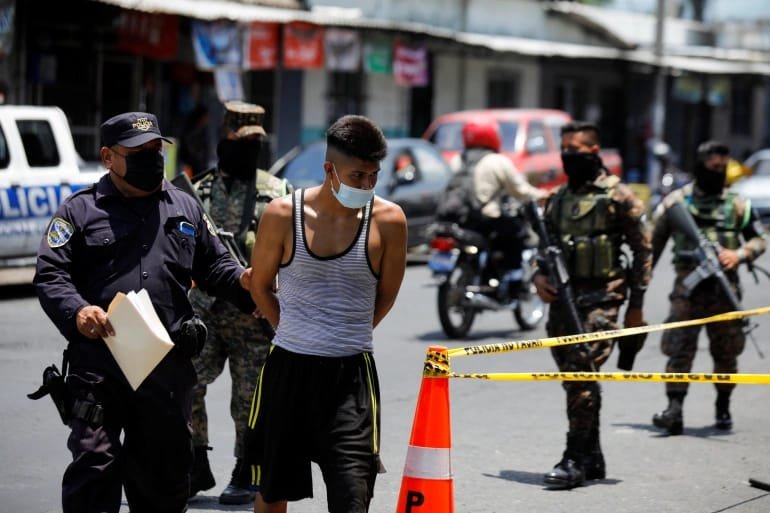Amnesty International has accused the Salvadoran government of “systematic” human rights abuses during its crackdown on gang violence, including torture and enforced disappearances, since the nationwide state of emergency was declared last year. President Nayib Bukele had suspended civil liberties, including the right to a lawyer and the right to gather, to give sweeping powers to the government to deal with the violence. Over 66,000 people have been detained under this policy, with many being rounded up despite not being affiliated with gangs. However, human rights groups and observers have cautioned that the state of exception is eroding democracy and civil rights in El Salvador, with Bukele’s popularity increasing as the crackdown on gangs exerts pressure on networks of gangs.
El Salvador’s President Nayib Bukele recently announced the creation of a new mega-prison to hold people who have been rounded up under the state of emergency declared in March 2022. The prison is intended to hold gang members and will be their “new house,” where they will live for decades and be unable to harm the population. The article notes that human rights groups have raised concerns about the state of emergency and the impact it has had on civil liberties and due process in the country. It seems that the criticism of Bukele’s policies has not impacted his popularity. The crackdown on gangs has put pressure on the networks that have been responsible for violence and exploitation in many areas of El Salvador for years, which may be seen as a positive outcome by some. However, the alleged human rights abuses and erosion of civil rights and democracy have raised concerns among human rights groups and observers.
